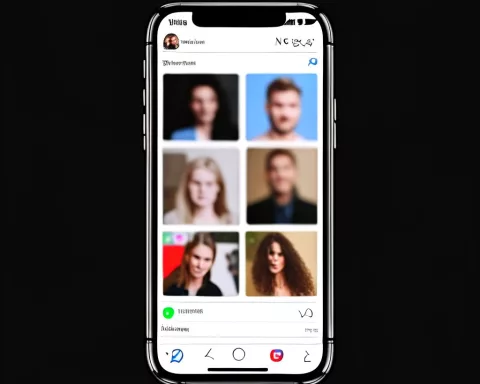Elon Musk’s recent comments about South Africa’s Economic Freedom Fighters (EFF) have stirred up a huge debate about misinformation and racial issues. He claimed that the EFF is promoting “white genocide,” a statement that caused a storm on social media and drew attention from people all over the world. While some support Musk’s view, many others see it as dangerous exaggeration and misinformation. This situation shows how social media can both connect and divide people, making it crucial for everyone to think carefully about the information they share. As discussions continue, it’s clear we need to seek the truth in this complex digital age.
What are the implications of Elon Musk’s comments on South Africa’s Economic Freedom Fighters (EFF)?
Elon Musk’s comments about the EFF have sparked global debate over misinformation and racial tensions. His accusations of “white genocide” concern many, while critics label them as dangerous hyperbole. The incident highlights the complexities of social media’s role in shaping narratives around sensitive socio-political issues.
The Double-Edged Sword of Social Media
The rise of digital platforms has revolutionized how we connect and share information. However, the same platforms that bring people together can also become hotbeds for misinformation and inflammatory rhetoric. This dichotomy was starkly highlighted when billionaire entrepreneur Elon Musk made explosive claims about South Africa’s Economic Freedom Fighters (EFF), igniting a global uproar.
Elon Musk, known for his groundbreaking innovations and polarizing personality, accused the EFF of inciting violence against South Africa’s white minority. His assertion that the EFF is “actively promoting white genocide” quickly went viral on his social media platform, X, garnering over 45 million views. The post set off a flurry of reactions from local and international audiences, exposing the deep-rooted tensions and varied perceptions surrounding South Africa’s socio-political climate.
Musk’s allegations focused on the South African government’s recent enactment of a controversial land expropriation law. This law allows for land to be expropriated without compensation as a means to address historical injustices from the apartheid era. Musk’s incendiary comments received both vehement criticism and staunch support. His tweet, which included a video of EFF leader Julius Malema chanting “Dubula ibhunu” (Shoot the Boer), further inflamed the online debate.
The Power of Symbols and Historical Context
Art and music have long played significant roles in political movements around the world. Much like the protest songs of the American civil rights era or the anthems of the anti-apartheid struggle, the EFF’s use of “Dubula ibhunu” carries deep symbolic weight. This song serves as a poignant reminder of the scars left by South Africa’s tumultuous history. However, Musk’s portrayal of the song oversimplifies its complex meanings. The South African Equality Court ruled in 2022 that singing this song was not hate speech but rather a form of political expression protected by freedom of speech.
Reactions to Musk’s post poured in from across the globe. Some American and South African commentators echoed Musk’s concerns, arguing that the white minority in South Africa faces systematic persecution. These voices often drew unsettling parallels to historical atrocities and called for international intervention. “White people in Africa are facing a genocide. They are being openly killed and discriminated against. The whole world must condemn this!” read a prominent tweet, encapsulating the fears of those aligning with Musk’s viewpoint.
Conversely, many others staunchly opposed Musk’s assertions, accusing him of disseminating dangerous misinformation and perpetuating a debunked conspiracy theory. Critics highlighted that Musk’s rhetoric mirrored the discredited “white genocide” narrative, long dismissed by credible institutions and experts. “Complete hyperbole and propaganda. Your true colors are coming out,” one user retorted, reflecting the sentiment of those who saw Musk’s comments as a reckless misrepresentation of reality.
Controversy Surrounding the EFF and Media Representation
The EFF and its leader Julius Malema are no strangers to controversy. Malema’s provocative speeches and the party’s radical policies have frequently attracted intense scrutiny. The EFF’s stance on land reform and economic redistribution resonates with many who feel marginalized, yet it also sparks fear and resentment among others who view it as dangerously divisive. The struggle song “Dubula ibhunu” evokes strong emotions; for some, it symbolizes resistance and the unfulfilled promises of post-apartheid South Africa, while for others, it signifies a relic of violence and racial discord.
Musk’s allegations also shed light on the broader issue of media representation and the role of international perception in shaping narratives. “Where is the outrage? Why is there no coverage by the legacy media?” Musk questioned, highlighting what he viewed as a significant oversight. While this critique has some merit, it overlooks the complexities of media reportage and inherent biases. The South African government and various international bodies have consistently rejected the notion of a coordinated “white genocide,” emphasizing that crime and violence in the country are not racially selective but are instead symptoms of broader socio-economic issues.
Adding another dimension to the controversy, Musk claimed racial discrimination in South Africa‘s economic sphere, specifically citing challenges faced by his company Starlink in obtaining a license to operate. “Starlink can’t get a license to operate in South Africa simply because I’m not black. How is that right?” Musk asserted. South African officials quickly refuted this claim. Clayson Monyela, a spokesperson for the Department of International Relations and Cooperation, clarified that the issue was not racial discrimination but regulatory compliance. “Starlink is welcome to operate in South Africa as long as it complies with local laws,” Monyela stated.
The Complexities of Land Expropriation and Global Reactions
The land expropriation law itself is a polarizing topic. Supporters argue that it is essential for rectifying historical injustices and promoting equitable land distribution. The African National Congress (ANC), which backed the bill, emphasizes its alignment with constitutional provisions and its potential to foster socio-economic reform. Critics, however, fear that such policies could destabilize the economy, infringe on property rights, and deter foreign investment. The international community remains divided, with some praising the move as a bold step toward justice, while others, including former U.S. President Donald Trump, have condemned it due to concerns over potential discrimination.
Musk’s comments and the ensuing international reactions highlight the complexities of South Africa’s ongoing struggle with its apartheid legacy. The debates over land reform, economic inequality, and racial tensions mirror broader global issues. Musk’s enormous influence and the virality of his posts amplify the stakes. His ability to shape public opinion and ignite worldwide conversations is unmatched, yet it also carries a significant responsibility.
Navigating the Digital Age: A Call for Discernment
The saga of Musk versus the EFF serves as a stark reminder of the power and peril inherent in the digital age. In a world where tweets can reverberate across continents and shape narratives, distinguishing between information and misinformation becomes increasingly challenging. As the discourse continues to unfold, it is crucial to navigate these turbulent waters with a discerning eye, acknowledging the multifaceted realities that lie beneath the headlines.
In this modern landscape, the responsibility to seek out truth and critically evaluate the information we consume and share has never been more vital. The digital age provides unparalleled opportunities for connection and enlightenment, but it also requires a heightened awareness of the risks and responsibilities that come with such power.
“`markdown
FAQ: Elon Musk’s Comments on the EFF and Misinformation
What sparked the debate around Elon Musk’s comments on the Economic Freedom Fighters?
Elon Musk’s accusation that the Economic Freedom Fighters (EFF) is promoting “white genocide” ignited a global debate on misinformation and racial tensions. His comments, made on social media, garnered significant attention and provoked strong reactions, highlighting the complexities of discussing sensitive socio-political issues.
How have social media platforms contributed to the spread of misinformation in this context?
Social media platforms like X (formerly Twitter) have the power to rapidly disseminate information, but they can also become breeding grounds for misinformation. Musk’s explosive claims reached over 45 million views, showcasing how quickly unverified statements can circulate, affecting public perception and fueling division.
What are the historical implications of the EFF’s use of the song “Dubula ibhunu”?
The song “Dubula ibhunu” holds significant historical context, symbolizing resistance against apartheid and the struggles faced by marginalized communities. While the South African Equality Court ruled it is a form of political expression protected by freedom of speech, Musk’s portrayal oversimplifies its meaning, leading to controversy over its implications in today’s socio-political climate.
How has the South African government responded to Musk’s claims?
The South African government has rejected Musk’s assertions of racial discrimination against his company, Starlink, clarifying that the licensing issues are due to regulatory compliance, not race. Officials have consistently stated that crime and violence in South Africa are not racially selective and cautioned against the narrative of a coordinated “white genocide.”
What are the differing perspectives on the land expropriation law in South Africa?
The land expropriation law is highly polarizing. Supporters argue it is necessary for addressing historical injustices and fostering equitable land distribution, while critics fear it could destabilize the economy and infringe on property rights. The international community remains divided, with opinions varying from support for justice to concerns over discrimination.
What is the broader lesson to be drawn from this situation regarding information sharing on social media?
The situation surrounding Musk and the EFF highlights the importance of critical evaluation of the information shared on social media. In the digital age, discernment is vital to avoid spreading misinformation. As discussions about sensitive topics unfold, individuals must strive to seek out the truth and understand the complexities underlying the narratives being presented.
“`












